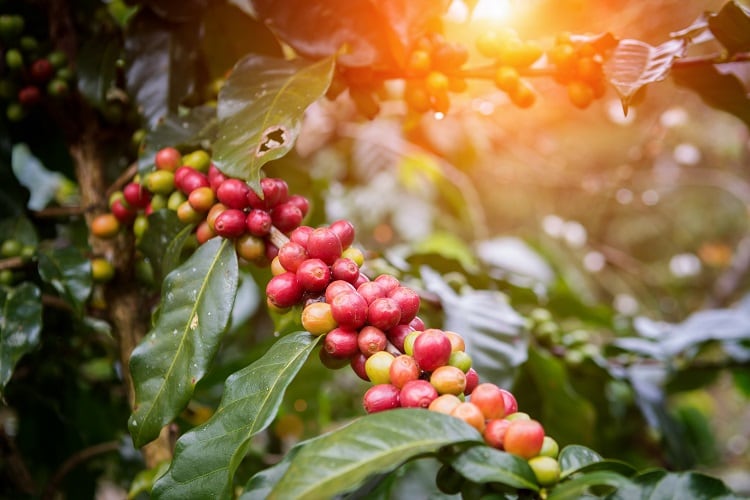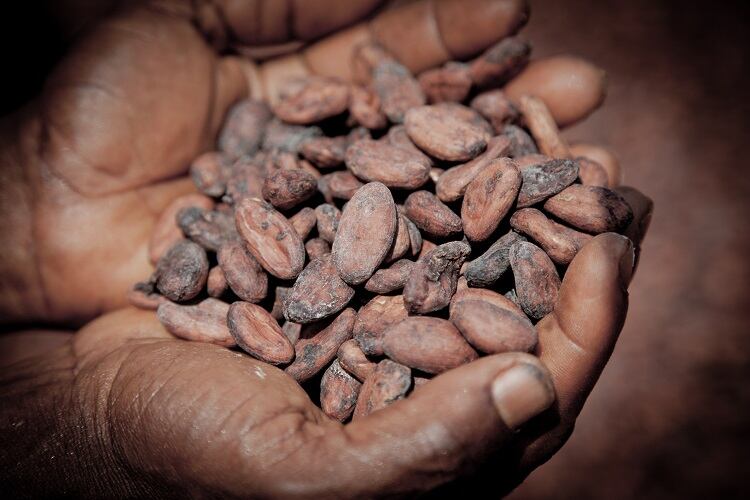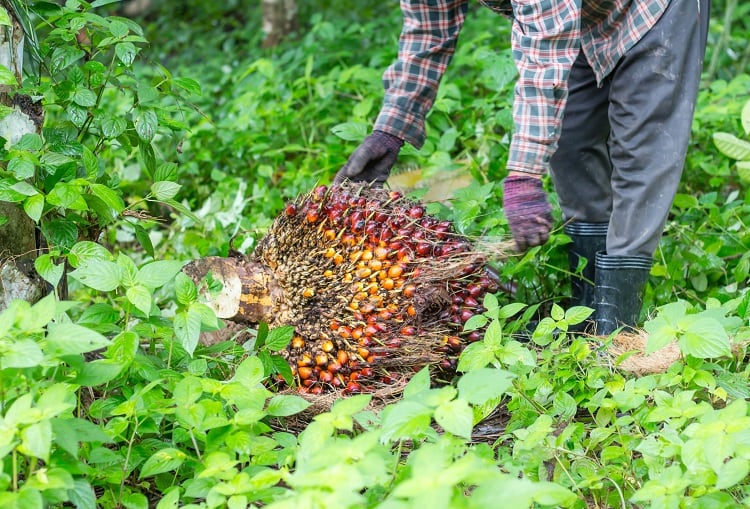In Europe, leaders are working to bring the coronavirus outbreak under control, food production lines are implementing social distancing measures, and supermarket retailers are overhauling their logistics operations.
Further down the supply chain, players are facing very different challenges – particularly those in developing countries. Smallholder farmers, for example, which in countries across Africa are producing a lot of the cocoa, coffee, and palm oil used in the products we buy, are battling border constraints and threats to their livelihoods.
Julie Greene, who heads up Olam’s Corporate Responsibility and Sustainability and works out of Côte d’Ivoire in West Africa, suspects that vulnerabilities already experienced by these smallholders will be exacerbated over the course of the year.
FoodNavigator catches up with Greene to find out what disruptions smallholders are, and are predicted to be, experiencing throughout the coronavirus outbreak.
‘Africa is particularly at risk’
Globally, agri-food giant Olam has an integrated supply chain of approximately 47 agricultural commodities, including cocoa, coffee, palm oil, nuts, soya beans, beetroots, and rice.
And it’s big business. According to the company, one in every three bars of chocolate is produced with cocoa beans and cocoa products supplied by Olam. In coffee, the business grows, processes, and delivers enough to provide one cup of coffee to everybody on the planet once a week.
A number of its commodities are grown in Africa, Olam’s Greene explained. “We have palm oil plantations in Gabon, we have coffee in several countries in East Africa and a bit in West Africa. We have cocoa – that’s another major crop – as well as rice in Nigeria.”
The commodity list also includes sesame from East Africa, onion grown in Egypt, and cashew from Ghana at Côte d’Ivoire.

Yet the coronavirus pandemic poses a risk to these supply chains. “We do know that Africa is particularly at risk for quite a number of reasons,” Greene told FoodNavigator.
This is, in part, due to a lack of advanced health infrastructure in developing countries, which is particularly prevalent in rural areas.
The UN World Food Programme (WFP) has also picked up on these risk factors. Their latest figures indicate that the coronavirus pandemic will put an additional 130 million lives and livelihoods at risk – with concern the highest for those in countries across Africa and the Middle East.
Further, the ratio of doctors and medical personnel to population in Africa is strained, Greene explained. According to 2016 data, the ten countries with the lowest physicians density worldwide are all in Africa, including Niger, Chad, Ethiopia, and Malawi.
Barriers to inputs
Olam buys from a direct and indirect network of an estimated five million smallholder farmers.
Of this, the business gives sustainability support to more than 700,000 smallholders, which can range from the provision of inputs like seeds, fertiliser, herbicides and pre-finance, to environmental and economic programmes.
It is these inputs that are under threat in some – but not all – areas due to coronavirus disruptions, Greene explained. “In our experience so far, it’s been quite spotty. Some areas have not seen concerns with farmers being able to access inputs.”
However, others have reported barriers in accessing farming inputs, largely due to disruptions in cross-border trade. “In Côte d’Ivoire, for example, there have been some issues with farmers saying they couldn’t get the inputs for their fruit crops, because they used to get them from across the border, and things are not really moving.”
Fortunately, such challenges are not prevalent across the continent, but it is something Olam ‘really needs to watch for’ in the coming weeks and months, we were told.
These problems have ‘certainly been exacerbated’ in some areas due to border constraints associated with the virus outbreak. Production constraints is also contributing to the issue, Green continued, as a number of inputs are produced in countries with strict self-isolation measures, such as China.
Labour shortages and ageing populations
Another concern for smallholder farmers amid the coronavirus pandemic concerns labour shortages.
The 700,000-plus smallholder farmers that Olam works with does not include each individual farmer’s workforce – many of which are either migrant labourers or workers from other communities. “There is quite a high reliance for smallholder farmers on migrant, community, and regional moving labour force.”
Restrictions on movement, including constraints on public transport, in some areas are having an impact on smallholders’ labour forces. This could mean that farmers are not able to kick-off harvest early in the season or at the optimum time to yield the best results. This, in turn, could have effects on farming communities.
However, the sustainability lead said she does not predict smallholder farmers to be the ‘first ones’ affected by labour disruptions, at least in the immediate term. This is because smallholders generally rely on family labour.

From another perspective, Olam is also concerned about its labour force in smallholder operations due to ageing populations. On average, Olam’s farmers in Thailand, Peru and Colombia, are aged over 55 years.
As has been observed in Europe in recent weeks, the coronavirus mortality rate is particularly high amongst those in higher age brackets. “We know that COVID-19 can affect older people. That may also be a reason to suspect disproportionate concern in those particular populations,” said Greene.
Food insecurity
Rising food prices and its effects on food security is a concern for vulnerable people around the globe.
With factors such as a general economic slowdown and export restrictions, it is unsurprising that Olam has observed food price increases certain regions of Africa.
“If there are food price increases, who is the most hit? It’s the people who are the most vulnerable in the country overall. And farmers are generally among the poorest population, so they won’t be able to purchase the…quantity and quality of diet,” said Greene.
In West Africa, food assistance experts are predicting the amount of people suffering from food insecurity to double this year, due to COVID-19, which Greene suggested could be compounded by additional concerns, such as the East African locust crisis. “It was focused in East Africa, and over the course of June we’re expecting it to spread [west] into a number of new areas, including Chad.”

Further, many countries in Africa are reliant on cereal imports to feed their populations. Since the COVID-19 pandemic hit, import restrictions has seen the amount of calories being imported into these countries reduce.
While the bans exist to, in part, protect each country’s own food stocks, it does have health implications, suggested Greene.
Another kick-on effect includes a potential reduction in export earnings for many countries in Africa, which are ‘heavily reliant’ on these sources of income. This concerns all commodities, and not just food items.
Searching for a silver lining
From Olam’s perspective, as long as needs for farmer’s inputs are met, and the company is able to continue providing services in education and sensitisation, Greene said its supply chains are ‘looking okay’.
The company is modifying the way it works with smallholders. This means employing social distancing measures to deliver inputs, information and training. And the business is incorporating digital tools to deliver messages to its farmers and field staff for education purposes.
“We are innovating as best we can to reach the farmers with messages about hygiene, and of course normal farming [practices].”
If there was a positive to come out of the COVID-19 situation, Greene said it could relate to water security across the continent. The more attention is focused on Africa’s public health, the more the region’s limited access to clean water will come to the fore.
“If we can…collectively with partners invest where that water is needed, it’s not just going to help prevent COVID-19, it’s probably going to prevent a whole lot of other diseases and improve people’s health overall.”


